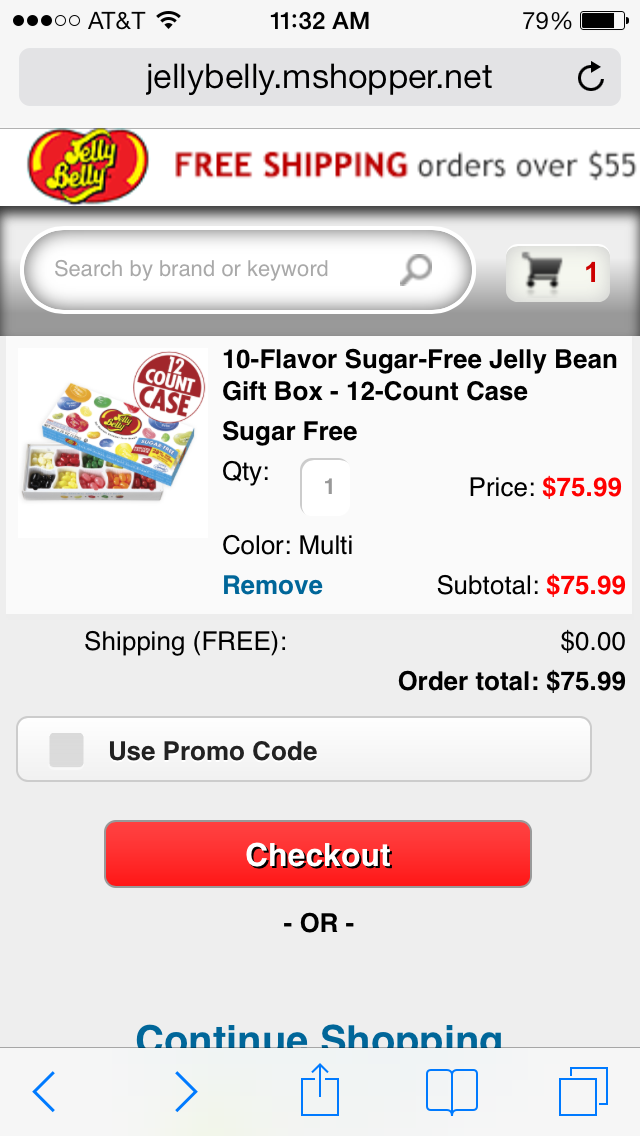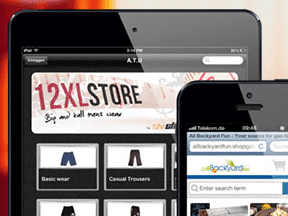Consumers increasingly conduct product research on smartphones. But actual online purchases are typically done on desktops, laptops, and, now, tablets.
There are many reasons for this, but mostly it is that many online stores are not optimized for mobile devices. Let’s face it, it’s difficult to shop on a very small screen — smartphone conversion rates are generally below 1 percent. It may be convenient to scan a barcode and connect to an online store to compare prices while you are showrooming, but it is often not convenient to do the actual shopping.
Does all of this mean merchants should simply not bother with a smartphone-optimized store? No, it does not. Merchants should implement a fully optimized mobile store for several reasons.
- Facilitates research. Shoppers conducting product research in a mobile friendly store are less likely to leave immediately.
- Helps with mobile search. Google prioritizes mobile sites in mobile searches, increasing the chances your store will be found on a smartphone when consumers do their research or showrooming.
- Sales will grow with time. Conversion rates on smartphones are lower than other devices currently, but those rates will increase as shoppers become comfortable making purchases on smartphones, especially as screens get larger and connectivity is faster.
The biggest barrier for mobile stores is developing and supporting a variety of smartphone devices, operating systems, and form factors. If your ecommerce site uses an older shopping cart that does not support mobile or responsive design, you may have felt you were simply out of luck.
However, there are hosted mobile store alternatives that can be implemented rapidly, especially if your cart already generates a product data feed. The customer experience may not be as elegant as a custom store or a responsive theme, but the cost to implement is low and the time spent marketing the mobile site can be hours or days instead of weeks or months.
If you are not ready for a complete mobile store, consider launching a “best seller” or “flash sale” smartphone site. This would allow you to test mobile commerce without a large investment of time or money.
In this article, I’ll review two options for hosted mobile stores: mShopper and Mobitzu. Both vendors host your entire store with data that you provide.
Launching an mShopper Mobile Store
mShopper is a feature-rich mobile store that’s compatible with nearly all smartphones. Shoppers can use search, faceted navigation, product detail pages, and flexible checkout options.
The setup for mShopper is straightforward.
- Import your product data feed.
- Customize and design your store layout: choose the theme, upload logos, and select modules for the shopping experience.
- Select custom features, such as store locator, gift wrapping, analytics, and shipping options.
- Choose how to accept payments and process orders.
- Post a redirect code to your new mobile store, so that shoppers on smartphones will automatically see it.

Jelly Belly example of an mShopper store.
Ken Barber, vice president of marketing for mShopper, said that conversion rates tend to be low initially — 0.3 percent. But he said they increase to 1 percent and higher as the site is optimized. Catalog companies, apparel stores, and beauty stores typically perform better.
I assumed that most site abandonment for mobile shoppers occurs in the checkout process. According to Barber, however, it’s actually on the product detail pages. It is therefore still important to optimize images for smaller screens and faster load times. The add-to-cart percentage for mShopper customers on smartphones is low — around 5 percent. But once shoppers add a product to the cart, the conversion rate is consistent with other devices. It is important to offer a mobile friendly payment method like PayPal or Amazon Payments to eliminate entering credit card numbers.
Barber stated that stores that do not currently have a data feed may take several days to set up and configure properly. However, if a data feed is available, a simple store can be running in hours. mShopper has a partnership with SingleFeed, a data feed provider, to help accelerate implementations.
The investment of time to customize navigation, promotions, and checkout options varies depending on the merchant’s requirements and the number of products.
mShopper offers several payment methods including the mobile checkout solutions from Google, PayPal, and Amazon. You can also use your current payment gateway.
mShopper also offers an SMS — text messaging — marketing service with its mobile stores. Shoppers who opt in to SMS marketing typically have a much higher conversion rate. For this service, there is a small setup fee, a monthly hosting fee, and a performance fee.
Mobitzu Mobile Options
Mobitzu is similar to mShopper in its overall setup, architecture, and operation.
Mobitzu supports building the store from a data feed, partnering with GoDataFeed to expedite uploads. It also has direct integrations with several major shopping carts, including Magento, Volusion, and Yahoo stores to support the product catalog as well as order synchronization.
Mobitzu offers several themes, the option to upload your own logos, configurable promotions and banners, filtered search, and browse-by-category options. Payment options include PayPal and credit cards by PayPal. You can configure shipping options as well.
Mobitzu offers SMS marketing and promotes its ability to allow shoppers to “tag” products they like by providing their smartphone number. This allows merchants to target shoppers who opt in with related promotions. Merchants can also utilize tags in regular online stores or within email promotions as a way of expanding the SMS subscriber base.
Pricing is a scalable monthly fee based on the number of products and overall traffic. There is a retargeting fee for SMS promotions and SMS messaging is a separate charge per message.
Conclusion
If you do not have a smartphone-friendly store, it may be worth your time to investigate these options. Larger merchants, however, will likely need responsive stores that provide a consistent experience regardless of the device or form factor.




